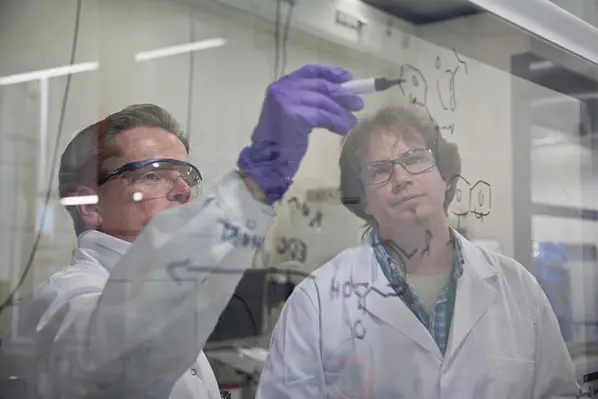The world’s first research facility to grow both food and fuel using desert lands irrigated by seawater has been opened on a two hectare site in Abu Dhabi, UAE
The facility, operated by Masdar Institute of Science and Technology is funded by the Sustainable Bioenergy Research Consortium (SBRC).
UAE minister of climate change and environment, HE Dr. Thani Ahmed Al Zeyoudi said, “This project will not only sustainably produce bioenergy, but also offer a pathway to grow our aquaculture industry, which supports food independence.”
Aquaculture systems can reduce a nation’s dependence on foreign food and improve security, but they also pose environmental challenges due to the impact of nutrient-rich effluents flowing into the ocean. The SBRC tackles these concerns and is seeking to minimise the footprint of commercial farming practices.
Professor of environmental science at the University of Arizona Dr. Kevin Fitzsimmons said, “As the planet’s population approaches nine billion people, we must advance technologies that enable sustainable and manageable food production. The innovative facility in Abu Dhabi is a showcase of how cross-sector cooperation can lead to breakthrough research with the potential to deliver both food and aviation fuel – and do so in a sustainable, scalable way.”
The research facility uses coastal seawater to raise fish and shrimp for food, whose nutrient-rich wastewater then fertilizes plants rich in oils that can be harvested for aviation biofuel production. The salt-tolerant halophyte plants – whose commercial potential is relatively unexplored – thrive in arid, desert conditions and don’t require fresh water or arable land to grow. In the last step of the system, wastewater is diverted into a cultivated mangrove forest, further removing nutrients and providing valuable carbon storage, before the naturally filtered and treated effluent is discharged back into the sea.
More than 2,000 commercial flights have used sustainable aviation biofuel blended with conventional petroleum since renewable jet fuel was approved for commercial use in 2011.
The goal of the research facility is to demonstrate the viability of an integrated bioenergy production system with respect to essential food and fuel production, suitable land use, reduced carbon emissions and wastewater clean-up. If the technology proves viable at this smaller-scale there are further expansion plans to continue with the ultimate ambition to scale up to a 200ha demonstration site.




